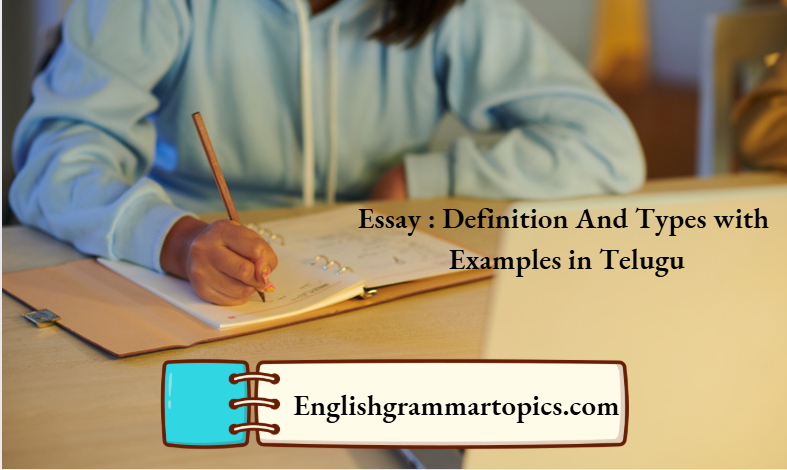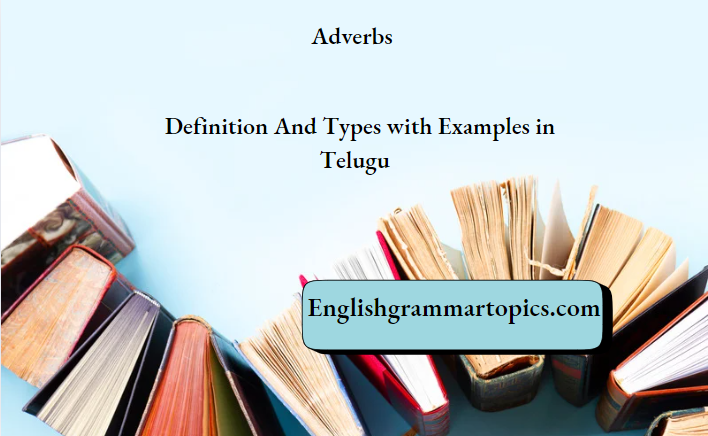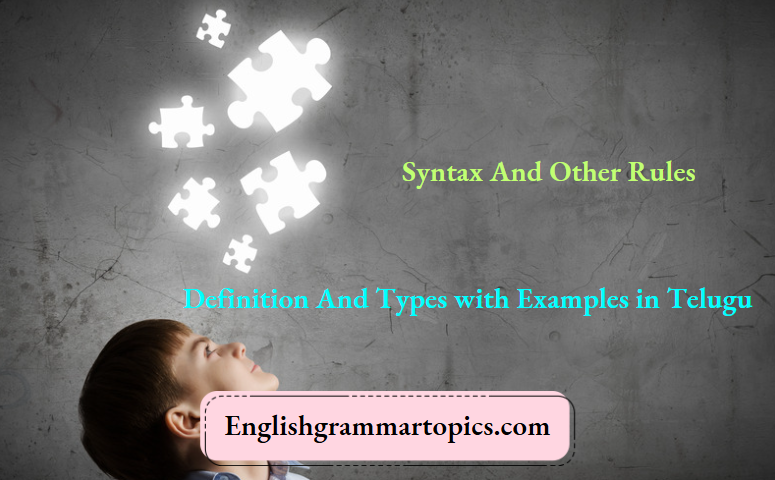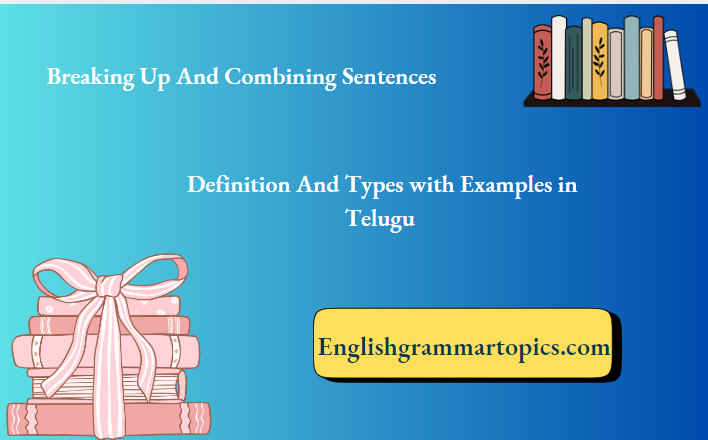Essay
An essay may be defined as an exercise in written composition expressing one’s feelings and thoughts on a given subject in a familiar informal and pleasing way. Addison’s essays are good models for students. What is said of the paragraph is substantially true of the essay which is after all a glorified kind of expansion.
1. Characteristics
N.B. What is said of the paragraph is substantially true of the essay which is after all a glorified kind of expansion.
1. Unity: (a) Of subject (One theme), (b) Of Treatment (i,e. as many paragraphs as there are ideas, besides the intro- duction and the conclusion.
2. Coherence: The first paragraph must give the purport of the whole essay; the body of the essay is to develop the theme by an ordered arrangement of the various ideas in as many paragraphs, so as to secure unity. The last paragraph is to be a sort of summing up the several ideas dealt with in the course of the essay.
3. Length: About 50 lines.
4. Style: Clear, simple, literary and dignified.
5. Language: Simple, direct, free and natural. The secret of clear writing is clear thinking. Write as you talk to a friend on the theme of the essay.
6. The personal view point: Give your opinions, otherwise the essay would be colorless: it is this feature that raises the essay to the level of art and literature.
7. Balance: The space devoted to the development of any idea should be proportionate to the importance of that idea in relation to the other ideas in the essay.
8. A good Beginning: It should arrest the reader’s attention and tell him what to expect.
9. A good Conclusion: It is to be effective and satisfying.
Note: A good essayist is more known by what he omits than what he selects.

Read and Learn more English Grammar Topics
Good Beginnings
1. Making the first paragraph strike the key-note of the essay.
2. Laying down a Preposition: (e.g. “A man’s first care should be to avoid the reproaches of his own heart; his next is to escape the censures of the world”). (Vide ‘Sir Roger at the Assizes by Addison).
3. A Quotation: An essay on ‘Reading Books’ may begin with a quotation from Carlyle.” All Books are properly the record of the history of past men”
Best Endings
1. Echoing from another stand- point or suggesting in another light the core of the first paragraph.
2. Making the last paragraph richly suggestive of the whole essay; (e.g. “This therefore is the praise of Shakespeare that his drama is the mirror of life, etc.,” Johnson).
3. The use of a quotation: (e.g. Addison ends his essay “Pleasures of Imagination,” with a quotation from Bacon: “Entertain studies that fill the mind with splendid and illustrious objects as histories, fables and contemplations of nature.”)
4. A postscript (an after thought) as in the case of the Essay on “Sleep” by Leigh Hunt:
Sleep is most graceful in an infant; soundest, in one who has been tired in the open air; completest, to the seaman after a hard voyage; most welcome, to the mind haunted with an idea; most touching to look at, in the parent that has wept; lightest in the playful child; proudest, in the bride adored.
B. Classification Of Essays
1. Descriptive; 2. Narrative; (a) Incidents or Accidents; (b) Historical; (c) Biographical; 3.Reflective; 4. Imaginative. III. HOW TO SET ABOUT AN ESSAY
1. Classification.
2. Scope (What exactly the subject is and what it is not). 3. Collection of Material: (Note down points, facts, ideas and illustrations, as and when they strike you without troubling yourself at this stage about their order or suitability).
4. Selection; (From what you have jotted down, select the points most suitable for your essay and cross out those which are either irrelevant or mere repetitions).
5. Making an Outline: If you go through the material collected, having definitely the subject in your mind, you should be able to write down the Main heads (say 3 to 6) under which the material can be grouped. This will ensure the unity of the essay (i,e. treatment).
6. Fill in the outline with details marked (a), (b), (c) etc. from the material collected under the various Main heads.
7. Think out a suitably effective beginning as well as a refreshingly suggestive conclusion even before you begin the essay; you will them have planned your essay. This will ensure (a) Orderliness and system (b) balance, and (c) security against repetition and digression.
8. Put in flesh and blood in the skeleton of your essay. Note: Avoid the pronouns ‘T’ and ‘You.’
A. HISTORICAL EVENT
The Battle of Plassey
Outline: (a) Introduction, (b) Causes, (c) Circumstances leading to the battle (a) Nawab evading the terms of the treaty (b) Conspriracy of the nobles (c) Clive joining the plot. (d) Battle, (a) Clive marching with an army towards Plassey, (b). Jaffar’s faithlessness to his master, (c) The Nawab’s defeat. (e) Conclusion.
The battle of Plassey though an insignificant, event in itself, formed the turning point in the history of India and led to the foundation of the British Empire.
There were two causes for the battle of Plassey. On the death of his grandfather, Ali Vardhikhan, young and impetu- ous Surajud-Doulah became the Nawab of Bengal in 1756. Soon aferwards, he made enemies of the English on the one hand and alienated the nobility of his state by his cruel ways on the other.
By his unprovoked attack on Calcutta, he invited, so to speak, the armies of the English to march against him under the command of Robert Clive. After his defeat, he was forced to grant cretain concessions to the English. But the Nawab began intriguing with the French, with a view to evading the terms of the treaty.
Now the thoroughly dissatisfied nobles plotted to de- pose the Nawab and put Mir Jaffar, one of his generals, on the gadi. Naturally, Jaffar, headed the conspiracy and got Clive to join the plot.
Aminchand, a banker, threatened to divulge the plot to the Nawab when Clive pacified him by using a forged document for the payment of twenty lakhs of rupees as hush money. Now the Nawab was taken to task by Clive for evading the terms of the the treaty and intriguing with the French.
Receiving no reply, Clive marched with a well-trained army and attacked the Forces of the Nawab at Plassey, a village ninety miles from Calcutta. The Nawab’s army under the com- mand of a trusted and experienced general, Mir Mardan in- flicted heavy casualties on the English.
But on his death, con- fusion spread among the numerous but disorganised troops of the Moghul army, and the panic-stricken Surajud-Doulah fled.
Fortune once again smiled on Clive. Mir Jaffar who was to have come to the Nawab’s help, stood aloof with a huge army under his command. Thus he was responsible for the utter defeat of the Nawab.
The victory was full of momentous consequences. This made the English the virtual rulers of Bengal. Eventually they conquered the whole of India in the course of a century. But there is a silver line in the cloud.
The Balkanised India has sice become unified and integrated under British rule, to emerge as the second biggest successful Democracy in the world.
2. Any Place Of Interest You Have Visited The Taj Mahal
Skeleton: (a) Introduction (b) The greatest tomb, (c) Description: (a) Magnitude (men, material, money and time), (b) Avenues, (c) Decoration (mosaic, pattern), (d) Indo-Persian style of architecture, (e) The Mecca of the world tourists, (d) Glory: (a) in the light of the setting sun, (b) in full moonlight (e) Conclusion.
There are examples though rare of human love tran- scending earthly limitations. They let us into the divinity of what is worldly; one such is the Taj.
It is regarded as one of the wonders of the world. It was built by the great Moghul Emperor, Shah Jahan over the grave of him beloved wife, Mumtaz. It is the finest and costliest tomb ever built on earth. The Taj is as sublime as the emperor’s love for his consort.
It is said, about 20,000 men were employed in the con- struction; it was begun in 1632 and took nearly twenty two years to complete the edifice. It cost nearly thirty lakhs of rupees in those days.
It has been built of white marble and is indeed a marvellous feat of structural engineering. The ap- proaches to the building are majectic avenues, smooth green lawns with water beds bordered on either side by flower plants of rare and different varieties.
All round, there are fountains playing in shady spots. At the centre is the mausoleum which contains the remains of the emperor, Shah Jahan and Mumtaz. The decorations on the marble walls are of the rich mosaic pattern. The Indo-Persian style of architercture of Akbar’s days was adopted in the construction of the monument.
Its main structure is characterised by elegance and grandeur rather than strength and massiveness. It is a tribute to the exquisite and unrivalled workmanship and genius of ancient Indian builders.
The artistic splendour of the whole scene testifies to the supernatural love and affection of the emperor for his beloved. The four entrances to the Taj together, have the whole Khoran inscribed on them. Verily, it is the Mecca of the world tourists and a harmonious blend of Hindu and Moslem cul- tures.
As we approach it, we are overpowered by its vastness and solemnity. The mighty and majestic dome on the main structure and the minarets, are bathed by the golden rays of the setting sun.
Gleaming in the evening sun, the silent and placid waters of the Jumna gliding past the Tomb, seem to add a dimension to its grandeur. The transparent splendour of the Taj seen in a fullmoon night is a sight for gods.
The soft and pleasant moonlight playing on the milk white marble amidst the all pervading solemn silence, symbolises the luxury of magnificence invested on it; and this reveals the resplendent glory to the Moghul court.
The Taj remains an unforgettable feast for life for the visitor’s eye, making him “wonder if earth has anything to show more fair,” and we cannot help recollecting in tranquility, Wordsworth’s experience embodied in his immortal lines: “I gazed, and gazed, but little thought What wealth the show to me had brought.” In short the Taj is happily described as tears crystallized, a poem in marble.
3. Hobbies
Analysis: (a) Introduction (b) Signification (different kinds), (c) Distinguished from Profession. (d) Distinguished from Recreation. (e) Distinguished from Entertainment or Amusement. (f) The creative element (a passion for inven- tion.) (g) Rewarding means of self-expression (h) Conclusion.
It is not everbody that has a hobby. It is a thing pursued for its own sake in all stages of life during one’s leisure. It is a rewarding means of self expression and helps make life fuller and richer.
Hobby is something that one does or a subject that one studies as an occupation for one’s leisure; hence it is a favourite engagement. There are different kinds of hobbies: painting, fishing, photography, carpentry, gardening and collection of stamps, rare flowers, old-books and curios.
Some are costly such as hunting and yachting, while some are within the reach of all. One can engage oneself in a hobby all through lite and thereby keep young in spirits and halthy even in old age.
What is hobby for one may be profession for another. A student having photography for his hobby cannot be happy unless he goes on an excursion and takes photographs of rare pieces of scenery. The idea of making money does not figure at all in the picture.
But the studio proprietor practices photography as a profession in as much as he makes living by it. True, hobbies like collecting stamps, making fancy articles, rabbit rearing, bee-keeping may turn out to be paying propositions, but that is accidental.
A hobby is to be distinguished from a recreation though both refresh mind and body. Among recreations mention may be made of participation in games and sports, swimming and boating.
But there is a radical difference in the intellectual approach: men have to seek after leisure to indulge in a recreation for relief from fatigue, while leisure induces them to the pursuit of a hobby, which makes them feel refreshed and better fir for work; this is because they feel a sense of gratification of an inner urge.
If recreation replenishes depleted energy, hobby renews life and vigor and that makes all the difference relief is the aim of a recreation, while it is a accidental in the pursuit of a hobby.
An entertainment (or amusement) can never be called a hobby, though both make one cheerful and happy by keeping the mind engaged in a pleasant way. Entertainments include going to a theatre, cinema, circus and concerts.
But there is a fundamental difference in the emotional approach. For pleasure, an amusement is indulged in, while out of pleasure, a hobby is pursued, and that makes all the difference. A hobby therefore gives a high sense of gratification that recreation or entertainment can ill afford.
Some of the discoveries and inventions are traceable to hobbies. Hobby in whose pursuit one is engrossed, forms the fulfilment of a passion for inventing things which are surely more beneficial to the world the pursuits which seem to profit man because of their direct utility.
A hobby thus affords him the reward of self-expression. In the early stages of student’s life, nothing reveals his personality so much as his hobby. This furnishes the clue in a way to the parent and the teacher for determining his career wherein his natural bent of mind finds complete expression.
Thus it is that a hobby innocent in character, pursued out of pleasure, induced by leisure and indulged in because of an inner urge for self-expression- affords intellectual and emotional gratification, revitalization of the faculties of body and mind-and contributes to the full development of one’s personality, which is the summon bonus (the be-all and end-all) of liberal education, the goal of a university.
4. Exhibitions
Outline: (a) Introduction (b) Idea of an exhibition (a) Three dimensional historical representation of evolution. (b) Museum (c) Different kinds (c) History (a) Beginning, Growth (b) Organization (d) Spirit :- (a) University (b) Re- search laboratory (e) Uses — (a) Means of advertising goods (b) Scope for starting and improving national industries. (c) Special advantages to small manufacturers and cottage industries. (f) Necessity for them (Mobile exhibitions). (g) Conclusion.
An Exhibition adds to the improvement and prosperity of nations. It is at once a Museum, a University and a Research laboratory. It is, so to speak, a three dimensional historical record of the progressive stages of achievement in a particular field.
For instance, Railway Exhibition includes the various models (pro- duced in several countries) of engines and carriages which illustrate their evolution from the time of James Watt to the present day. So an exhibition is a panorama of the continuity of progress made in the Railway.
It is in this sense that the exhi- bition is a Museum. An exhibition is an organised public show of the achievements, in Art-Science, Agriculture, Horticulture or Industry. The scope of the Industrial exhibition is wider and of greater utility and therefore commoner than other exhibi- tions.
The age of industrial exhibition began in England in 1851. Other great exhibitions followed, such as the Paris Inter- national exhibition in 1855, the Pan American Exhibition in New York in 1901.
There is a regular committee for selecting the site, getting stalls erected for the exhibits, inviting various exhibitors. Admission is by tickets. There is also a committee of Judges to award prizes and certificates of merit for the exhibits. A well organised International Exhibition, forms a milestone in the history of human advancement and contributes to world peace and happiness.
Most people attend an exhibition for diversion because novelty and variety characterize it. They wish to enjoy them- selves spending a few hours seeing the various exhibits.
But this brings their knowledge up to date in that subject, without their being conscious of it. The idea of utility if totally absent. Hence an exhibition may be justly called a University imparting Liberal education.
A visitor with an inventive and mechanical turn of mind has the best opportunity of studying the latest models and improving upon them. Thus in a certain sense an exhibition proves a laboratory and helps raise the standard of production in general.
An exhibition is the best means of advertising the goods of the participating countries or manufacturers. At each stall an expert is posted to explain the special advantages which a particular model has over others.
Nor is this all, sometimes the process of preparing a product, or the principle of working a machine is demonstrated, and specimens are freely distributed along with relative illustrated pamhlets. Prizes awarded to the best exhibits serve as an impetus to manufacturers to further improve their workmanship.
Thus the industrialist and the consumers are benefited alike. Especially countries backward in cretain industries prosper by adoping the improvements made by other nations in those industries. A country may not have an industry though rich in the concerned raw materials.
Such a country may with advantage participate particularly in Industrial exhibitions, start new industries, improve and ex- pand those that are already there. The development of the industrial potential of a country adds to its wealth and contrib- utes to the happiness of the people by raising the standard of life.
Small manufacturers and cottage industries are specially benefited by exhibitions, for they do not have the means to advertise their goods, so that most people may not know what different kinds of articles are produced and where thay are available.
The result is: industries not having a market for their goods, languish and die as a matter of course. Every nation should endeavour to popularise and par- ticipate in exhibitions, if it is to hold its own against the daily growing competition among the nations of the world.
Hence the Exhibition Trains and Exhibition Ships specially chartered for the purpose. The latest knowledge and improvements are thereby carried to the doors of the people.
Exhibitions, encyclopaedic in range, international in out look and culture, and global in dimension bring together in one place the integrated intellectual achievements of the differ- ent nations of an age.
They thus help increase the prosperity and happiness of mankind, create and improve good under- standing between the various people and pave the way for es- tablishing world peace.
5. Biography Of A Great Man
Life of Potti Sreeramulu Out line; (a) Introduction (b) Early life (birth, parentage, education) including his stay at Sabarmati Ashram (c) Village uplift, propagation of the gospel of the Charka (d) Harijan uplift (e) Pracharak of G.M.F. (f) Trials for Andhra province. (g) Fast to death. (h) Conclusion.
By self-immolation through fasting for fifty eight days, unmindful of the outcome Potti Sreeramulu dedicated his life to the formation of the Andhra Province. One wonders if earth has any sacrifice half so sublime as his to show.
The world ha so far, produced only two others who may be ranked next to him. One is Mekswine, an Irishman, who fasted to death for the freedom of his country, and the other is Janthendradas of the Pubjab who died fasting in jail under British rule.
Potti Sreeramulu was born on 16-1-1901 in Madras in a Banya family. While serving in the G.I.P. Railway, he lost his wife. So he resigned his job in 1927 and joined Gandhi’s Sabarmati Ashram to dedicate his life to the service of the country.
Astonished at his exemplary life, Gandhi remarked that if he had ten such disciples, he would win Swaraj for India in a year. Next for four years, he worked for village uplift and for one’ year he preached the gospel of the Charka with missionary zeal, going from door to door in the Nellore district.
Now he took to Harijan uplift and surpassed Gandhi in his service. By fasting on four occasions, he made Harijan temple-entry an accomplished fact and came to be called “Second Gandhi”.
Even after Independence, the laws realsting to Harijan temple-entry and untouchability remained a dead letter. He therefore fasted for their enforcement before the chief minis- ter’s office with the result he was put in jail for one month.
On coming out, he fasted for 28days at Wardha for self-purifica- tion. Moved by this, President Rajendraprasad got a directive issued to the States to observe the Harijan day.
He found that corruption infected the Congress at all levels. With a view to keeping away from politics, he worked as a Pracharak for collecting Gandhi Memorial Fund, on a monthly salary of Rs. 50/- though he was appointed on Rs. 150/- He found no response in the matter of contributions to the fund in Andhra and diagnosed the cause to be frustration following their failure to get a province for themselves. The main hurdle was the settlement of the question of Madras.
He naturally appealed to Prakasam and Ranga to fast for the formation of the Andhra Province to no purpose. So he issued a statement that he would fast to death for the forma- tion of the Andhra State, the question of Madras being settled amicably to all the minorities concerned.
The historic fast unto death began on 19-10-1952 at the residence of Maharshi Sambamurty. At the commencement he took an assurance from the Maharshi and the doctors attending upon him, that no food should be given to him by mouth or otherwise even in his unconscious state.
Even Sambamurty who had approved of his fast told him that he was entering the state from which recovery was an impossibility, meaning that he should give up the fast, when Sreeramulu signified hi surprise and smiled
Nehru’s telegram asking him to give up the fast was deservedly commented upon by Sambamurty in his remark: “Nehru wants to make us fools”.
His soul departed on the 58th day of the fast. The Centre’s decision to form the Andhra State excluding the disputed areas was received while the funeral procession was on the way.
Next morning the selfless leader, Tenneti Viswantham rightly resigned his Assembly membership. If the other Andhra Assembly members had followed in his footsteps and started agitation throughout the Andhra area, the modest dream of Sreeramulu would have been realised and his sacrifice purposeful.
Sad to say, the present truncated state of Andhra was carved without Madras being declared at least a Chief Com- missioner’s province as envisaged in the Centrally sponsored Dhar Committee report.
Potti Sreeramulu went to jail five times, fasted on five occasions and proved a truer follower of Gandhian cult than Gandhi himself in respect of the propagation of the gospel of the Charka, his service for the uplift of the Harijans and rural India, self-denial as a pracharak; finally he proved a better martyr than Christ or Gandhi, in that he dedicated his life for a noble cause by self-immolation.
If it was given to Gandhi to demonstrate the potentiali- ties of fasting, it fell to Amarajeevi Sreeramulu to purge it of its impurities and imperfections such as threat, demand, bargain and undignified compromise.
Thus the unassuming Karmayogi has given to the world the most sublime concept of martyrdom (Prayopavesam) by fasting unto death for a great cause with a smile on the lips and with no thought for the result, and he has deservedly been canonised a saint.
6. Sweet Are The Uses Of Adversity
Outline: 1) Introduction, (a) What Adversity means and implies, (b) Uses: a) Stoicism, (b)Optimisn, (c) True values of life (iv) Contrast between prospersity and adversity: a)Virtues of (temperance X fortitude); b) Reveals (vice X virtue) (c) Involves worries and dangers Xgives hope and consolation (d) Brings friends X tries friends, (e) A worldly belssing X revela- tion of God’s favour, f) Forgetful of God X mindful of God (g) Moral and spritual effect of adversity:- a) Makes martyrs, b) Renders miracles possible by elevating man to godhead.
The statement ‘Sweet are the uses of adversity’ is paradoxicl. One naturally avoids adversity if possible. Pandavas were no exception to this, and their life in exile bears ample testimony to it. But it shall presently be shown that the statement is an unqualified truth.
Adversity is a condition of suffering or a state of destitution often implying previous prosperity. The good things that belong to prosperity such as: wealth, comfort, power and position are to be wished; but the good things that belong to adversity are to be admired.
The uses of adversity are sweet and multifarious. It brings out the best in man. First, it makes one a stoic, develop- ing the virtues of patience, endurance, discipline, sacrifice and reconciliation to one’s lot in life. It never disheartens a man; on the other hand it moulds and strengthens one’s character.
Secondly, those who have been trained in the school of adversity are by far superior to those brought up in the lap luxury. They make the best of thing of as they come, look only on their bright side and become real optimists. To the senior Duke in the forest of Arden, the biting winds serve but to make him thus smile in the face of adversity:
“This is no flattery: these are consellors, That feeling persuade me what I am, Sweet are the uses of adversity.” The Duke could thus translate the stubbornness of for- tune into so quiet and so sweet a style.
Thirdly, only one who has experienced adversity has the affectionate understanding and sharing of the troubles of others. He thereby develops the virtues of sympathy and compassion and comes to have a sense of the true values of life, which go to make it complete and perfect.
The Duke reached a state wherin he could harmonise the finite in him with the infinite, when pain itself becomes à valauable asset and sorrows become transmuted into joys.
It often happens that a man in prosperity wastes his wealth in riotous living. Hence the virtue of prosperity is temperance, while the virtue of adversity is fortitude which is the more heroical of the two. Virtue in adversity is like precious spices most fragrant when they come to be crushed or in- censed.
Prosperity best brings to light vice, and adversity does best reveal impending evil, and disgust at being deprived, which poison the pleasures of prosperity. Adversity is not without radiant hopes of good, and the consolation of suffering for an ideal or conviction- which not only relieve the sadness of the unfortunate, but make them emerge better through purifi- cation.
If prosperity brings friends, adveristy tries them as nothing else does; and this is no where better exemplified than in the case of Timon of Athens who had been frequently visited by his friends in his affluence, but was deserted by them in his difficulties.
If prosperity is a worldly blessing, adversity is a greater benediction that carries with it the clearer revelation God’s favour. So adversity is an instrument in the hands of God for the moral and spiritual elevation of man.
A perfect and upright man, Job, the gretest of all the menof the cast, in the course of a single day, had his seven children killed in house collapse, and all his of the possessions either stolen or burnt up. Upon that he worshipped and said:
“Blessed be the name of God”.
Thus he stood God’s test of adversity by his unswerving retitude and unwavering confidence in God. As a result, he won God’s favour and was amply rewarded in the long run: he got back not only his children, but twice the possessions he had lost-a veritable miracle.
The coming back to life of the son of Bhadrachala Ramadas is another example in point in prosperity, one absorbed in material concerns and world by enjoyment is apt to forget God and lead a life of vice.
On the other hand adversity keeps him ever mindful of the Lord and enables him to lead a god-fearing and righteous life, against the most trying circumstances. This is what is meant by Job, when the he said to his comforters:
“Happy is the man whom God correcteth: therefore despise not thou, the chastening of the Almighty” “Doth the wild ass bray when he hath grass? Or loweth the ox over his fodder” ?
The same is the spirit undrelying Kunthi’s last request to Lord Krishna, for the visitation of affliction.
Sometimes adveristy makes martyrs. Martin Luther set himself against the potentates of Europe and had the gratification that he was sacrificing his life for a great and noble cause In the tragic hero, King Lear we behold a transition from maledictions to martyrdom.
In the immortal King Harischandra, we are instructed how unshakable faith in truthfulness, triumphing over the worst privations and afflictions, approaches to the nature of gods_ a miracle wrought by adver- sity, as the sovereign good and consummation of human nature. Thus it is that sweet are the uses of adversity which : “Finds tongues in trees, books, in the running brooks, Sermons in stones and good in everything.’
7. Libraries
To day no one needs say in despair, “Oh Friend! I know not which way I must turn for knowledge.” Libraries embody the accumulated wisdom of all peoples of all ages. Thus they become nurseries of moral and intellectual training especially to talented persons who cannot afford University Education.
There was a time when book-reading was the monopoly of the rich, and the luxury of the leisure classes. Before printing came into vogue, especially in the Medieval times the position of libraries was confined to religious orders or convents.
Books were witten by hand, mostly by the clergy, hence they were a rare and costly commodity. With the invention of printing press in the 15th century the institution of Libraries became possible for the first time. In the early stages, only kings and very rich people could own libraries. A library has come to mean a roon or building containing a collection of books or the books themselves.
There are different kinds of libraries: a circulation library is one that lends to subscibers books which may be studied at home and returned. From a lending library books may be taken out with or without payment. A free library is one that may be used by the public without payment.
Public libraries owed their existence to private charity either in the shape of books or money. Later on they were maintained by membership, subscription, supplemented by private endow- ments or donations. Now a public librarry is a non-profit one,
maintained in whole or in part by local taxation, refundable deposits being insisted upon from the members for the safety of books. Under a democracy every individual must realise his responsibilities as a citizen and exercise his rights.
Above all, the sacredness of the vote should be understood. Otherwise, elections and democracy become a mockery. For this end illit- eracy and ignorance must be wiped out on a nation wide scale, and this can be achieved by the opening of public libraries atall levels-which is therefore the condition precedent for the suc- cessful functioning of Demoracy.
Public library is one of the necessaries of life. Once Adult Education is taken up, thirst for knowledge can only be satis- fied by a net-work of public libraries. Libraries create a genuine interest in literature. Secondly, a good many do not have the means to buy books.
Though not badly of, some may not be able to buy all the books that interest or benefit them. Again it is not possible to own costly and reference books like the Encyclopaedia Britannica or Webster’s International Diction- ary which can be had generally only in public libraries.
More often than not, to a library is attached a reading room which is the best plac for quiet study. It develops the reading habit and fellow-ship among the visitors, differing in social rank, culture and age.
The library is the meeting place for the student, scholar, historian and scientist and thus it proves at once to be a school, a university and a research institute.
A library must include a section meant for children, the hope of the present and leaders of the future generation. Their association with the library in their impressionable period de- velops the reading habit and a sense of civic responsibility.
In the present set-up of the Panchayat Raj, public librar- ies have been opened at all levels- the Village Panchayat, the Zilla Parishad and the State.
Mobile libraries are provided with the help of vans for the good of people living in hamlets. The result is adult education becomes a realised fact. The need for libraries in the rural areas cannot be over emphasized.
At pre- sent 60% of the primary school students leave schools before reaching the standard of permanent literacy, with the result they lapse into illiteracy, if there were not a library in each village. Libraries are a measure of the cultural standard of nation.
As in most countries, libraries are to be attached to educational institutions. The village school is the focal point of primary education. Hence it should have a library attached to it.
Notable examples of National libraries are the British Mu- seum Library in London, the Bibliotheque Nationale in Paris and Congress Library in New York.
Libraries (with the manuscripts of the clergy of the middle ages as their nuclei), once the monopoly of kings, next the luxury of the rich, have become popular after the invention of printing.
Today free libraries prove at once to be educational institutions and research laboratories. Again through a net work of free libraries opened at village level and mobile libraries, knowledge is brought to the doors of the people living in hamlets, so that they largely help make adult educa- tion a reality and contribute to the making of a nation of ideal citizens with a broad and national outlook.
8. Newspapers
The Newspaper is both a sign and a boon of civilization. It started giving only news from various places and became a force in national affairs in the 17th century and has developed into a power in shaping the destiny of nations and influencing world affairs.
The world’s first printing press invented by a German, Johannes Gutenberg in the 15 century, started the develop- ment of mass communication. The newspaper as such took its birth in Venice in the middle of the 16th century and in England, the 17th century.
In India ” The Bengal Gazette” was the first to come into being late in the 19th century after the advent of the British. The cheap news-paper for the masses developed with the installation of steam printing press early in the 19th century, soon after the coming into use of the paper- making and the linotype machines.
A newspaper is a daily or weekly which contains news- local, inland and foreign – advetisements, matters of current interest and the Editorial. As the spelling suggests the ‘NEWS’ paper gives information received from the four corners of the earth; North, East, West and South.
To get news expeditiously every newspaper will have correspondents all over the world. The news covers almost all topics of human interest so that it has an appeal to all sorts of people: young and old, high and low, lawyers, doctors, politicians, businessmen, sportsmen, students, Cine-goers, literary men, educationists and research scholars: to mention a few.
They have, for leisure hours, entertainment and recrea- tional value which consists in the news relating to sports, the screen, the theatre and the fine arts. They furnish us also with a running contemporary history which can be had nowhere else. Thus newspapers embody the continuity of many-sided progress in the country.
The more a nation is educated, the greater (is) the de- mand for newspapers; for all the educated are eager to know what is going on all the world over.
So the total circulation and the number of dailies and weeklies in a country form an index of its civilization and progress. In some of the mvanced countries there are two if not three issues a da Among the various items of the newspaper, advertising is its back-bone in as much as the income from it, all but suffices to maintain it.
This brings together the employer and the workman, the manufacturer and the market, the producer and the consumer. The Editorial is the soul of the newspaper.
It is through this the editor influences public opinion on the one hand, helps the Government to formulate sound policies on the other. He gives the correct lead to the country and shapes its destiny. This is what is meant by the proverb: “The Pen is mightier than the Sword’.
Again the newspaper acts as an effective medium for representing the grievances of the people to the Government, to get them redressed. Nor will it be less critical of the people when they make unjust demands.
There by it holds the balance even between liberty of the individual and the authority of the state and makes democracy a success. Having a share indirectly in the Government, the newspaper has come to be jocularly called the ‘fourth estate’.
Especially in an emergency or crisis, it is the press that can do signal service by helping the country to tide over it. Articles contributed by experts on various subjects such as book reviews, reader’s views and letters to the Editor- are informative, educative and illuminating.
The newspaper brings to our doors the ideas of great thinkers, the discoveries and inventions of masterminds which keep us abreast of times. What is more, they make possible the continuation of the research already made anywhere in the world.
As an example in point, it may be mentioned that the invention of the Radio by Marconi, an Italian, is the result of his reading casually (while at a way-side inn) in a magazine an article by Hertz, a German scientist.
The achievements of an age thus become consolidated and integrated through news- papers. This illustrates the truth that great inventions do not spring fully developed from the brain of one man, but on the contrary represent the researches of many men of genius generally of diferent climes and times.
There are separae magazines, each devoted to a definite purpose, such as Health, Sports, Philosophy, Science, Econom- ics, Social reform, Politics, Culture films and Medicine.
Trade and commerce, the arteries of a nation’s wealth are best fed and nourished by newspapers which give wide and effective publicity to the placs of production of various ar- ticles to facilitate purchasing on the one hand- and to the markets where those goods best sell, on the other.
Newspapers sometimes prove as evil by representing and distorting facts, aggravating communal tension and racial hatred and creating needless panic among the people and dis- affection between the government and the people.
They also demoralise people through indecent advertisements and ob- jectionable writings. Unless it be to check such unhealthy ten- dencies, newspapers should not be subjected to restrictive laws, which defeat the very purpose of the press; otherwise the freedom of the individual and democracy become a mockery.
Thus it is that newspapers, an indispensable factor in public and social life, furnish us from all parts of the world, news on a variety of topics, which helps synthesize the fruits of man’s discoveries and reasearch, and make possible inven- tions.
They enable the undeveloped and less developed coun- tries to catch up with the advanced ones. They pave the way for the formation of the World Government which establishes world peace by eliminating wars, poverty, illiteracy, hunger and disease. Hence the newspapers of a nation are at once the symbol and the expression of its progress, civilization and culture.
9. Rivers
On earth, life is made not only possible and sustainable, but rich and happy by rivers; they have tricked their way into the life and thought of man. The lessons of life we learn from rivers are so many and so varied that we may find books in running brooks.
The rivers get their water from the rains on hills (like the Godavari), snow on mountaintops (like the Ganges), underground springs (like the Jhelum) big lakes (like the Nile) and another river (like the Padma).
The place where a river takes its birth is called its source. The rivers flow into a bay, a river, a sea or a ocean. The place where a river empties (itself) is called its mouth. Before joining the sea, the river branches and forms what is called the delta.
The whole length of the river lying between the source and the mouth is called its course, which changes according to the nature of the ground through which it flows.
Man has lived on the banks of rivers, for they have served him in a thousand and one ways. They not only supply drinking water to all creatures but make life sustainable.
They provide man directly with food in the form of fish. When the river reaches the plain, it flows slowly and irrigates land and helps produce all kinds of crops which form the staple food of mankind. The rich Gangetic plain is an example in point.
The whole irrigation system is based on rivers. In flood, the river carries silt from the mountain sides and renders land alluvial by its deposits.
What is more, in its couse it is joined by tributaries which augment its waters and widen the range of its usefulness by serving it as its arteries. For instance the Godavari together with its four tributaries serves the five states of Maharashtra, Andhra Pradesh, Karnataka, Tamil Nadu and Madhya Pradesh.
On the plains the river becomes navigable and forms an easy and cheap means of commerce, communication, travel and transport. The net-work of canals forming its nervous system help resolve especially the bottle necks in the transport of goods by railway and solve the problem challenging the poten- tial of present transport system.
Some river waters having hot water springs and minerals dissolved in them, have medicinal effect. Man built all his early civilization around rivers, and hence, centres of culture and places of pilgrimage lie generally on river banks. Varanasi, Allahabad, Bhadrachalam, Srisailam, and Tiruvayur may be cited as illustrations.
By constructing river projects, agricultural production and power potential can be immensely stepped up. To-day only negligible portion of river waters particularly in Andhra Pradesh is utilised, most being allowed to run to waste into the sea.
By constructing dams like the Pochampad, the colossal wastage could be stopped and thereby some millions of acres brought under cultivation. Execution of Hydro-Electric proj ects (like the one at Machkund and the other Srisailam in Andhra and Saraswathi in Karnataka) increase the power po- tential in which Andhra Pradesh is tragically deficient, with the result it remains today the most industrially backward state, though it is endowed by nature with all the necessary facilities.
Again the negative aspect of the service of dams is no less important. They avert incalculable damage caused peri- odically to life, property and crops, when they are in spate.
In flood many people die, hundreds of heads of cattle perish and serveral thousands of people are rendered homeless; commu- nications dislocated and traffic disrupted. Famine and epi- demics follow in its wake adding to the misery of the victims of flood.
The Mettur dam is among the largest multi-purpose dams in the world. It generates hydro-electric power. The reservoir, which serving as an effective check against the floods in the Kaveri, ensures regular supply of water to the vast irri- gation system in Tanjore delta.
The hydro-electric power must be fully exploted where the coal reserves are limited as in the peninsular region of India. If rivers are harnessed to capacity, they enable the coun- try to be self-suffient in respect of food and add to the nation’s wealth and help raise the standard of life and countribute to the happiness of the people.
Some rivers have significant assocations of their own, Egypt is called the gift of the Nile. The mother Ganges is sacred to the Hindus, symbolizing the civilization and spiritual heri- tage of India.
The river Jordon flows through the life and times of Jesus. The Rhine runs through European history, red with French and German blood.
The river is not merely a physical phenomenon to be turned to use. It purifies the heart and touches the soul of the person with the spiritual vision. It serves man in many ways by giving up self, prepared even for extinction; thus it teaches man to realise his soul through a series of renunciations.
In it, man feels the manifestation of the spirit of God to a pro- nounced degree and thereby achieves knowledge of the high- est order-the realisation of the infinite. Thus it is that one finds books in running brooks by acquiring knowledge, material, moral and spiritual.
A stroll by the river-side makes one recreated, refreshed and exhilarated, as it becomes alive with boats and pulsates with liveliness while passing by cities and towns.
She flows wild througth forests, roars through mountain gorges, crashes into a waterfall and finally glides over plains calmly but majestically; before she merges herself in her Lord, the Ocean, in peace and triumph, revealing the way our soul, after many trials and tribulations realises its ultimate object of perfect repose and eternal bliss in Brahma.
It embodies the spirit of selfless service (to the living in God’s creation) unparalleled in nature; a wealth of sublime beauty (rich enough for a poet like Wordsworth or Keats) to be inspired to share it with others in a poem and glorious enough for an artist like Raphael to immortalize on the canvas a mine of wisdon (vast enough for a moralist like the senior Duke to draw lessons from); and the universal spirit (divine enough for a high priest of nature like Wordsworth to sermonize).










